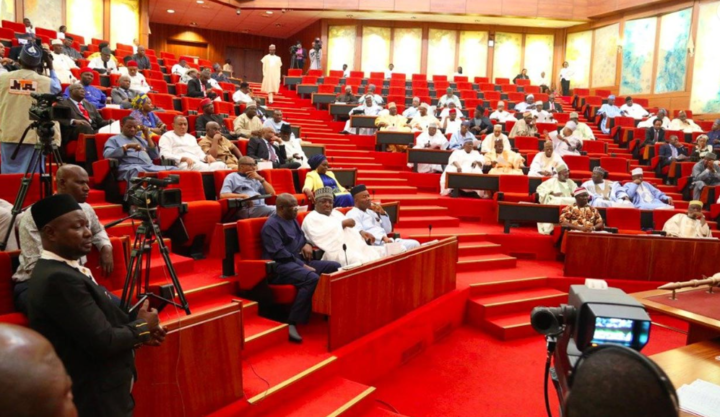The Senate officially granted approval to the Medium-Term Economic Framework (MTEF) and Fiscal Strategy Paper (FSP) for the fiscal years 2024 to 2026. This milestone came following a comprehensive presentation by Senator Sani Musa, the chairman of the Joint Committee on Finance, which was tasked with overseeing the MTEF/FSP.
One of the pivotal recommendations endorsed by the Senate pertains to the inflation rate projections. For the year 2024, the Senate greenlit an inflation rate of 21.4%, followed by 20.3% in 2025 and a further decrease to 18.6% in 2026. It’s noteworthy that the current inflation rate, as reported by the National Bureau of Statistics for October, stands at a staggering 27.33%. KPMG, a leading consultancy, foresees the inflation rate in Nigeria reaching 30% by December. However, the federal government remains optimistic, expecting a decline in the inflation rate by 2024.
The Senate also made significant decisions regarding key economic indicators. These include approving a crude oil production target of 1.78 million barrels per day, setting the crude oil price at $73.6 per barrel, maintaining the exchange rate at N700 to the dollar, projecting a GDP growth rate of 3.76%, and establishing a budget projection of N26 trillion for the year 2024. Additionally, the projected revenue for the same year was set at N16.9 trillion, with an approved deficit of N9 trillion.

A contentious topic during the Senate session was the exchange rate of N700/$ pegged for 2024. Several senators raised concerns about the feasibility of this proposal, sparking a robust debate on the Senate floor. In a bid to strengthen the value of the naira, the Senate went a step further and unanimously decided to ban the importation of all items that could be locally produced.
The legislative body also took proactive measures to amend the act governing the Bureau of Public Enterprise (BPE), aiming to empower the Ministry of Finance to take control of all assets of the federal government, both fiscal and material. This move signifies a strategic shift in the management of government assets, consolidating them under the purview of the Ministry of Finance.
Delving into the essence of the Medium-Term Expenditure Framework and Fiscal Strategy Paper (MTEF/FSP), it serves as a guiding document for the federal government’s spending, aligning with its economic and social objectives. This comprehensive framework operates on a three-year rolling plan, delineating the government’s spending priorities and the corresponding funding mechanisms.
With the approval of the MTEF by both chambers of Nigeria’s parliament, the path is now clear for President Bola Tinubu to submit the country’s 2024 budget proposal, amounting to 26 trillion naira ($34 billion), to the parliament for consideration. The document, endorsed by Tinubu’s cabinet before submission, anticipates the naira currency to trade at approximately 700 per dollar in the upcoming year, with a slight strengthening projected for 2025 and 2026. As the nation awaits the unfolding of these economic strategies, the decisions made by the Senate play a pivotal role in shaping Nigeria’s financial landscape for the coming years.
Support InfoStride News' Credible Journalism: Only credible journalism can guarantee a fair, accountable and transparent society, including democracy and government. It involves a lot of efforts and money. We need your support. Click here to Donate
